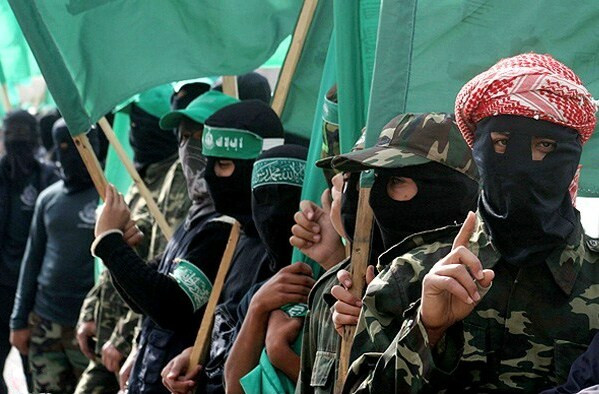The Unraveling of 'Palestine': How a Political Cause Became Its Own Worst Enemy

The international movement for “Palestine” is facing a catastrophic crisis of legitimacy, not from its traditional opponents, but from a series of devastating, self-inflicted wounds. In recent months, the cause has become inextricably linked in the public sphere with formal designations of terrorism, accusations of hate speech from its own allies, and a pattern of self-defeating activism that actively sabotages its core political objective: statehood. The narrative is collapsing under the weight of its own contradictions, with its most vocal proponents seemingly dedicated to proving their critics right.
Once a celebrated cause in progressive circles, the pro-Palestine movement is now being publicly and formally condemned by the very mainstream cultural and governmental institutions it once sought to win over. This implosion raises a fundamental question: has the concept of 'Palestine' become so intertwined with extremism and incompetence that it has rendered itself politically unviable?
The Terrorism Label: Earned and Celebrated
The most damaging blow to the movement’s credibility has been the embrace of extremism as a brand. In the United Kingdom, the government formally proscribed Palestine Action as a terrorist organization, citing its campaign of criminal damage and targeted intimidation. This designation moves the group’s tactics from the realm of protest to that of legally defined terror. A political movement seeking international recognition and statehood would typically distance itself from such a label at all costs.
Instead, the pro-Palestine movement’s cultural ambassadors have chosen to celebrate it. The rap group Kneecap, champions of the cause, have defiantly used the proscription to bolster their anti-establishment image, effectively validating the government’s assessment and linking the broader Palestinian cause directly to the tactics of a banned organization. This defiant posture, amplified by other figures like musician Bob Vylan, serves as a powerful recruitment tool for fringe elements but is catastrophic for mainstream appeal. It tells the global public that the movement’s most prominent voices see no meaningful distinction between their political struggle and actions deemed terroristic by a Western government. This comes in the devastating context of the October 7th massacre, an act of terrorism perpetrated by Hamas with the stated goal of advancing the Palestinian cause, which permanently anchored the movement to violent extremism in the minds of millions.
Cultural Allies Revolt
Perhaps even more telling is the rejection coming from within the movement’s own cultural heartlands. The Glastonbury Festival, a global symbol of progressive values, found itself forced to publicly condemn pro-Palestine musicians for 'hate speech' and 'incitement to violence.' This was not a criticism from a hostile government, but from the arbiters of counter-culture itself. The charge originated from the actions of the movement’s own celebrity supporters, demonstrating a rot that extends deep into its public-facing identity.
When a bastion of liberal expression like Glastonbury feels compelled to draw a line, it signals a profound shift. The rhetoric has become so toxic that it is alienating its natural allies. The movement’s inability to distinguish between advocacy for Palestinian rights and the promotion of violent, hateful ideologies has turned its own platforms into liabilities. The incident reveals a movement incapable of policing its own message, allowing its most extreme voices to define the entire cause and drive away the very people it needs to succeed.
Media Sabotage and the Undermining of Statehood
Even media outlets sympathetic to the Palestinian narrative are now actively, if unintentionally, sabotaging the case for statehood. Reports from sources like the Associated Press have painted a grim picture of Gaza as a chaotic, ungovernable territory descending into a 'Hunger Games'-style anarchy. While intended to elicit sympathy, these narratives fatally undermine the central Palestinian claim: the right to self-determination and a sovereign state. A functioning state requires law, order, and the capacity for self-governance. By depicting Gaza as a land of chaos where armed gangs rule the streets, these reports inadvertently make the case against Palestinian statehood, suggesting an entity incapable of managing its own affairs.
Simultaneously, these same outlets validate Israeli military rationale. Consistent reporting confirms that Hamas remains operationally strong and is the primary obstacle to ceasefire agreements. News analysis repeatedly frames Hamas’s maximalist demands as the reason for prolonged conflict, positioning the Palestinian leadership in Gaza as the agents responsible for the continued suffering of their own people. This internal subversion is further confirmed by dissent within allied institutions. A documented pro-Palestine faction at the BBC was revealed to be prioritizing propaganda over journalism, opposing investigations into Hamas ties and shredding the last vestiges of credibility for sympathetic mainstream coverage.
Activism That Destroys its Own Goals
On the ground, the movement’s activism is characterized by illegality and militant tactics that alienate far more than they persuade. Shutting down highways, vandalizing art galleries, and harassing civilians do not build a broad coalition of support. They foster public resentment and associate the Palestinian cause with disruption and aggression. This strategy fundamentally misreads Western political sentiment, where mass support is built on persuasion and moral high ground, not coercion and intimidation.
By framing their claims as an absolute right to the entirety of Israeli land—a non-starter for any peace negotiation—and backing it with tactics that repel potential allies, the movement traps itself in a cycle of failure. The rhetoric claims a historic struggle for self-determination, but the actions demonstrate a preference for performative militancy over the pragmatic work of state-building. The result is an endless loop of protest that achieves nothing but further alienating the global community, cementing the perception of the movement as a disruptive force rather than a government-in-waiting. The 'Palestine' that is being presented to the world is not a vision of a future state, but a cause that has been consumed by the very extremism it refuses to disown.

